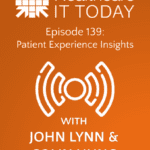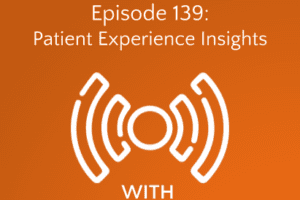I don’t think any thread has captured the discussion around information blocking and the associated regulations that require sharing results with patients as soon as their available as this thread from Justin Maykel. Here’s what he shared that sparked a strong response from patients and doctors.
Called a patient today to tell them their colonoscopy biopsies showed cancer. Patient already knew—got an automated alert earlier in the day and read the results on the online medical record. At home, alone.
This new law granting access to test results is a BIG problem.
— Justin Maykel (@justinmaykel) June 30, 2021
To be fair to Justin Maykel, a few days later he said:
I have learned a lot from your insightful comments and unique perspectives. This is a step forward in better managing the delicate and evolving patient-doctor relationship. The best communication is individualized & keeps the patient’s health—physical and emotional—at the center. https://t.co/0N3j9awvVi
— Justin Maykel (@justinmaykel) July 2, 2021
No doubt this is a more complicated issue than just should we share the information or not. Both sides actually want the same goal. The patient to receive the best care possible. Many patients want access to their results ASAP and the government has made clear they have the right to access that information. Doctors are afraid of what the impact will be on patients who get bad results. Patients want this as well. What Justin Maykel seemed to miss is that many doctors have seen that the damage of not having access to the results is much more than the damage of a patient getting access to the results before talking with the doctor. Open Notes has also shown that many of the fears doctors had around sharing progress notes with patients have been largely unfounded. Patient access to their health data is a good thing.
I’d strongly suggest reading through the replies to his tweet to get a deeper understanding of the topic from patients, doctors, caregivers, and more. Here are a few of my high level insights.
First, the patient has the right to that information and now the healthcare organization is legally bound in the Cures Act Information Blocking regulations to share that information. So, we need to figure out how to navigate the sharing of the results with patients. This isn’t a question of if this will happen. It’s here. We need to adapt and learn how to more effectively work with patients who will likely having access to results before they talk to their doctor.
Second, doctors need to consider that the patient may see the results and prepare the patient. Doctors are going to need to learn how to provide anticipatory guidance to patients about patients’ decision to access the results on their own or to wait for the doctor. This conversation can actually enhance the physician-patient relationship.
Third, patients may want to not look at the results. Just because patients have access to the results doesn’t mean they have to look. If you’d rather see the results when the doctor is present to answer your questions, that’s an option you can take. In order to make this easier for patients, systems which share results (I’m looking at you EHR vendors and Lab systems to name a few) need to provide an individualized way for the patient to choose to see the result or not. Sometimes that’s not easy when you want to see all your other healthcare messages, but maybe not your results.
Fourth, while seeing the results and not understanding them or misunderstanding them may be a problem, waiting for the results can also be its own pain for a patient. We can’t ignore that the unknown for patients can be extremely damaging while they wait for the doctor to get around to calling them about a normal result. This pain can be alleviated with access to the results.
Fifth, a few people commented that we may be getting over our skis in assuming that doctors are the best ones at sharing results. Many patients argued that it was much better for them to get the results on their own at home where they had time to process without external judgement. Plus, this allowed the patients to have the space needed to get past the shock and create a coherent list of questions for the doctor which made the visit with the doctor much more productive. While we’d like to imagine that the doctor is the most caring and knowledgeable person to share the results, we know that not all doctors bedside manners are created equal.
I’m sure there are others, but these are some of the top ones that seemed to rise to stand out. I’d love to hear other lessons we can learn and apply as we adapt to the new requirement to share results with patients.














Start your own Longitudinal Medical Record today!
Aggregate your records and safekeep them.